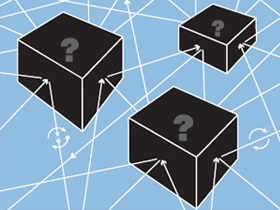Reductionism is the idea that things that do not appear material can be explained in terms of material effects. The materialist philosophy underlying the theory of evolution assumes that everything that exists consists solely of matter. (See Materialism.) According to this philosophy, matter has existed for all time, and nothing exists apart from matter. Materialists employ a logic known as reductionism to support these claims.
For example, the human mind cannot be touched or seen. In addition, the mind is not centered anywhere in the human brain. This inevitably leads us to conclude that the mind is a super-material concept. In other words, the entity you refer to as "me," which thinks, loves, feels anger and sadness, and that experiences pleasure or pain, is not a material entity in the same way as a table or a stone is.
But materialists say that the mind can be reduced to matter. According to their claim, the way we think, love, feel sadness and all our other mental activities actually consist of chemical reactions taking place among the neurons in our brains. Our love for another person is a chemical reaction produced by certain cells in the brain, and our feeling fear in the face of an appropriate event is still another chemical reaction. The well-known materialist philosopher Karl Vogt described this logic in the famous words, "Just as liver secretes gall, so do our brains secrete thought."202
202. Encylopedia Britannica, "Modern Materialism".


